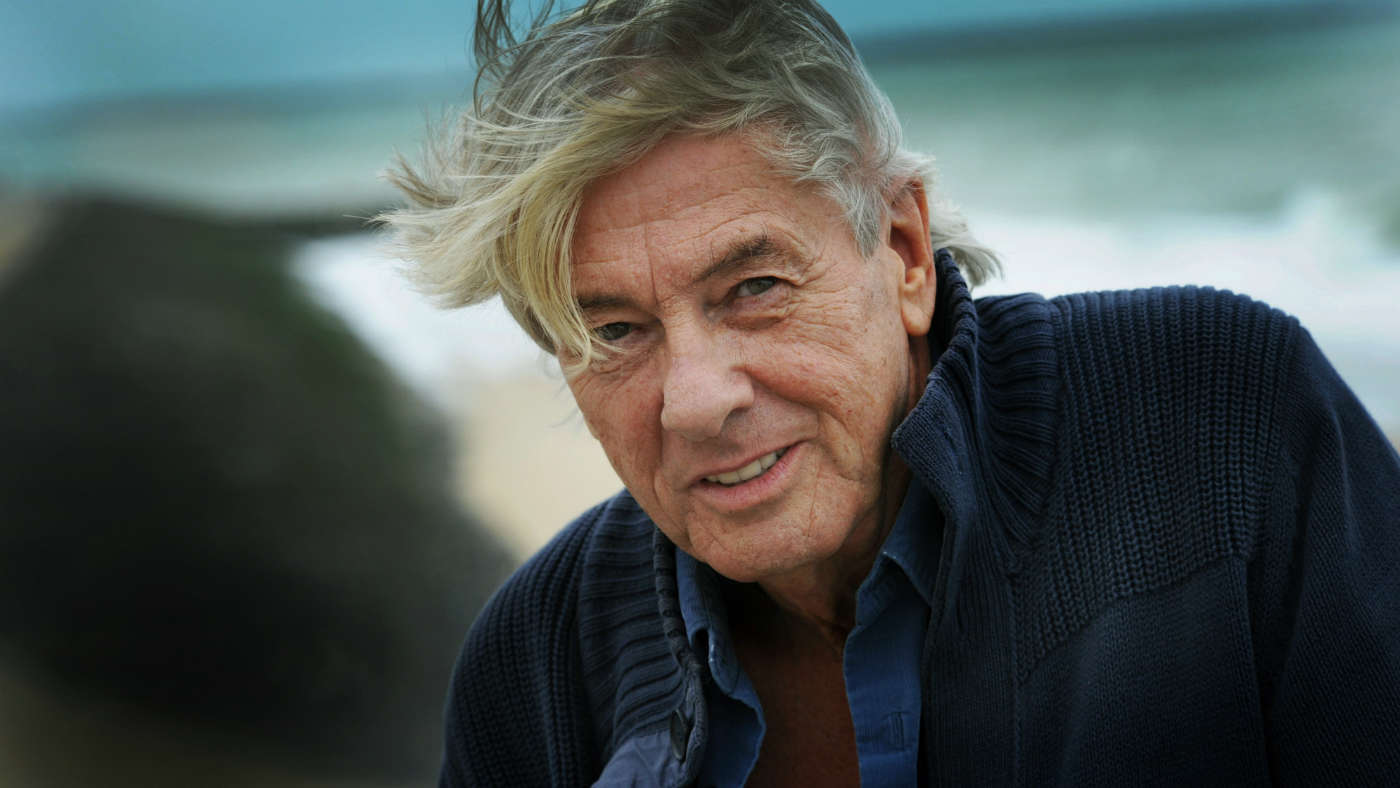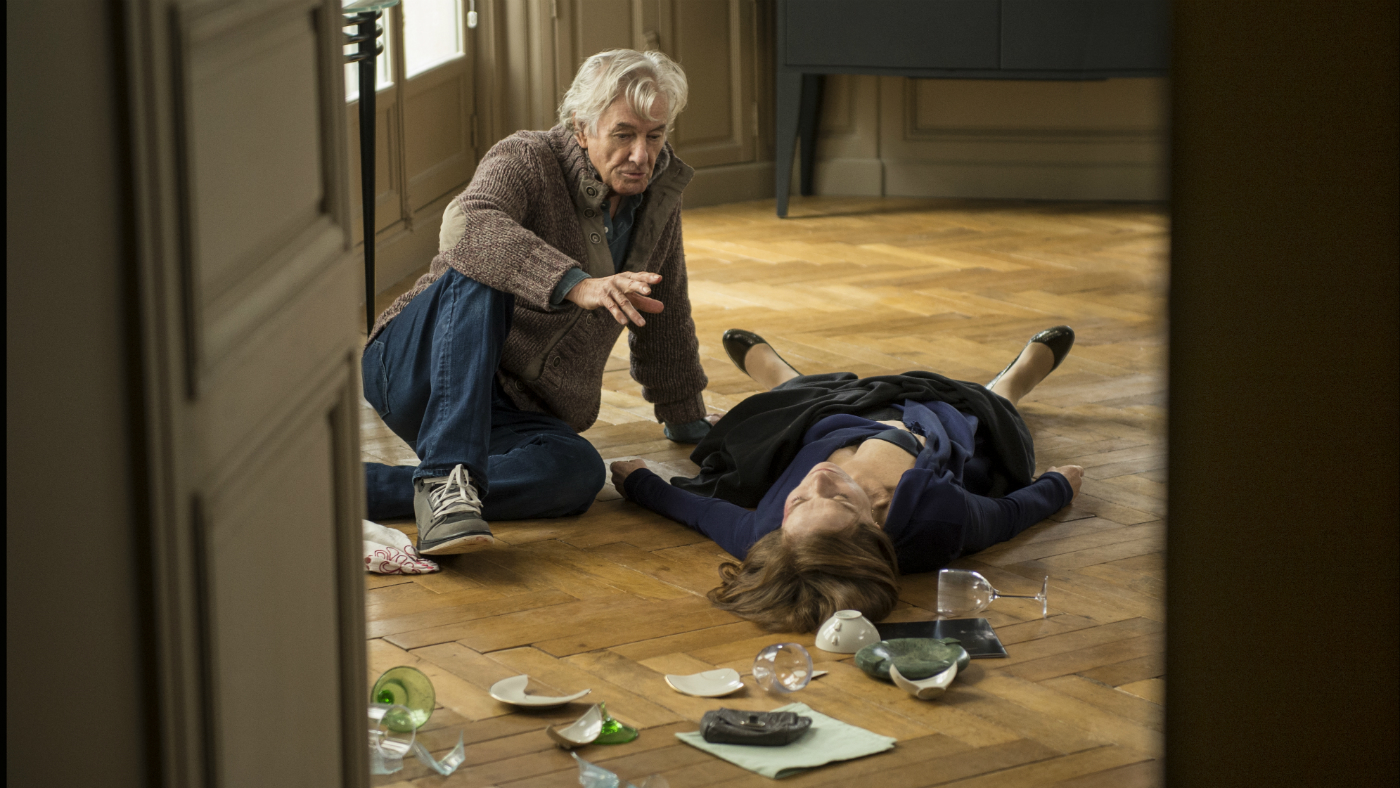Paul Verhoeven: 'I'm ready for the controversy around Elle'
Veteran director tells The Week Portfolio about his latest button-pushing film

A free daily email with the biggest news stories of the day – and the best features from TheWeek.com
You are now subscribed
Your newsletter sign-up was successful
Paul Verhoeven, the veteran silver screen controversialist, is making waves in critical circles with his newest offering, Elle. The New York Times describes the film as "a masterpiece of suave perversity," while The Guardian pays tribute to "the controversial director's electrifying and provocative comeback."
The film, which stars French actress Isabelle Huppert (La Ceremonie) in a performance that has won her a second Cesar Award, tells the story of a successful CEO who is attacked in her own home. Rather than contacting the authorities, she decides to take matters into her own hands. This culminates in a series of twists and turns "that may at any moment spiral out of control", according to the film's press release.
Verhoeven's films are often highly controversial, with challenging subject matter portrayed in graphic, violent ways. After a five-year break, the Dutch director has lost none of his subversive edge, with Rolling Stone describing the film as a "sexual assault thriller".
The Week
Escape your echo chamber. Get the facts behind the news, plus analysis from multiple perspectives.

Sign up for The Week's Free Newsletters
From our morning news briefing to a weekly Good News Newsletter, get the best of The Week delivered directly to your inbox.
From our morning news briefing to a weekly Good News Newsletter, get the best of The Week delivered directly to your inbox.
The Week Portfolio took the time to catch up with Verhoeven about his latest creation and what he makes of the controversy surrounding it.
[[{"type":"media","view_mode":"content_original","fid":"109512","attributes":{"class":"media-image"}}]]
The film deals with rape and is bound to upset feminist critics. Do you care, or are you more concerned with pushing people's buttons?
We were fully aware there might be controversy. Many of the journalists I talked to in the half year before the film came out in different countries said, "OK, this will be very controversial." They are still saying that. They see the movie, and they mostly like the movie, and they say "this movie could be very controversial… but I'm still waiting for the controversy! It hasn't happened yet.
A free daily email with the biggest news stories of the day – and the best features from TheWeek.com
Perhaps it's very hard to shock people at this point?
That I don't know – I can imagine some scenes would shock people. But I didn't try to shock, I used the rape as a point of narrative. It had to be there and it had to be violent. You can't make a rape and not make it violent. I didn't do it because I wanted to push buttons. I felt it was necessary and I was aware some people might be upset.
The scriptwriter Gerard Soeteman, who wrote all my Dutch movies, was very disturbed by the movie, and I've been working with him since I was 25. He had a hard time accepting it.
The problem really isn't the rape. I think that even in the United States, Jodie Foster has done a movie about rape. That's not something that can't be used as an element. There are 1,900 rapes a day in the US. If you listened to Trump yesterday, you can imagine it [laughs], but I think what probably disturbed him and other people was the development of the third act.
Even for the American actresses who said "no, no, no" to the movie, I don't think the rape was the issue, even though it's a very hot topic in the United States. It was that it isn't really a revenge movie.
At the end of the second act, she [the film's heroine] finds out who did this to her. In America, the third act would then be about her taking revenge – and finding an interesting and perhaps intelligent way to do it. But the movie goes in the opposite direction and she starts having a sadomasochistic relationship with the rapist. That's not acceptable in American culture, at least on a Hollywood level, but perhaps it is in independent [cinema].
If you want to cast an "A-list actress" from the US – and Isabelle Huppert is of course an "A-list actress" in France – that would not be possible.
Elle is not a revenge movie. It's an exaggerated version of love your enemy, so it's Jesus.

I heard you were originally going to make Elle in the States.
Originally we were supposed to make the movie in the US, and that's why I went to an American scriptwriter, who translated the French book into English. Then the scriptwriter David Birke wrote an American script, probably set in Chicago, Seattle, Boston or somewhere like that.
We starting looking for American actresses and American co-financers, but we didn't succeed with either. We went back to France. Said Ben Said [the film's producer] called me and said: "Paul, we've been trying for two or three months to find more money and actresses in the United States. It's not going to work, we can't do it there. I propose we go to France. Do you want to?"
At first I was scared, certainly culturally but mostly language-wise, but I said "Yes." From then on – that was in June – I had a terrible headache. It only disappeared sometime in December or January when I came close to shooting the film and started to realise that I could handle it. The moment I was on the set, the headaches (they were from anxiety, I think) disappeared. Of course, you think something terrible is happening. I had sharp pains and I went to several doctors! [laughs]
Doing it in French was a heavy burden. Overcoming that fear and feeling relaxed in another language was probably more difficult than making a movie in another language.
Was it the same with your first English film?
Sure it was, but then I was 45. This is 20 years later. Your open-mindedness and strength of adaptation diminish a bit when you get older – you get into your patterns. Then you have to throw them all away and say "OK." On top of that, I didn't know the actors, except for Isabelle [Huppert]. I had seen some of them, like Anne Consigny and Laurent Lafitte, in movies, but didn't know them at all. So I didn't know the cast, I didn't know the crew and I had never met these people. It was all guessing and a lot of intuition, and me saying: "OK, that's a good one, next!"
But not knowing and jumping into unknown territory were extremely electrifying and vitalising. I got through it very well. We made a lot of great choices. There wasn't much time to go back and look at tapes of these people. Mostly they came in and I asked them to do a part of the dialogue. We filmed it and then we looked at it, and it was "yes" or "no." It wasn't very deep.
But it went really well. The inspiration for using my intuition was reading an old interview with Ingmar Bergman, the Swedish director. They asked him about several movies he had made. "How did you make your decisions?" they asked. He said: "intuition."
Is intuition always a good thing?
Your intuition can be very bad sometimes, too. Bergman said that "20 per cent of my intuition I'm wrong, but 80 per cent I'm right, so I just go for the 80 per cent and don't think too much about it."
That was certainly the case the first time I did a film in the US, when I didn't know anybody and my English wasn't very good. You get very daring if you don't have tools to measure things. You drift and rely on intuition, and that worked for Robocop really well, just as it did for Elle. But if somebody asked me if I could make the film in Chinese, then I would say that would be tough!
I read that you cited Touch of Evil, 8 ½ and The Rules of the Game as the biggest influences on Elle. How did they influence you on this film?
From a cultural point of view, The Rules of the Game was more important than the other two. I saw that film for the first time when I was living in St Etienne in France, whenever that was – around 1955. It was more the moral attitudes in that movie – where everything, let's say, promiscuity is kind of OK. At the time it was an extremely revolutionary movie. But it didn't go down well at the box office. It was too much for everybody.
Yes, it was basically banned at the time.
Now of course, if you see the movie, it's extremely modern in its attitudes to sexuality, promiscuity and many other things. I didn't study that movie to make this movie, but I used those elements, and others in Touch of Evil and 8½.